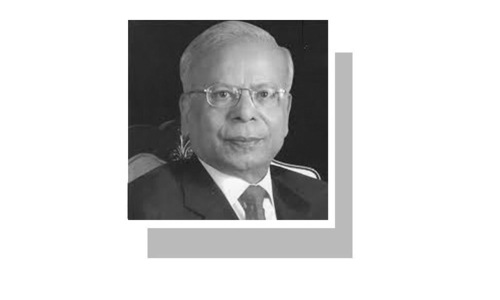US generals express concern over Pakistan’s nuclear arsenal in wake of Taliban takeover of Afghanistan

Top US generals are claiming that they had warned US President Joe Biden that a rushed withdrawal from Afghanistan could increase risks to Pakistan’s nuclear weapons and the country’s security.
“We estimated an accelerated withdrawal would increase risks of regional instability, the security of Pakistan and its nuclear arsenals,” Chairman of the Joint Chief General Mark Milley told the Senate Armed Services Committee on Tuesday.
“We need to fully examine the role of Pakistan sanctuary,” the general said, while emphasising the need to probe how the Taliban withstood US military pressure for 20 years.
General Milley and General Frank McKenzie, the leader of US Central Command, also warned that the Taliban Pakistan will now have to deal with would be different from the one they dealt with earlier, and this would complicate their relations.
“I believe Pakistan's relationship with the Taliban is going to become significantly more complicated as a result of the US withdrawal from Afghanistan,” General McKenzie told the lawmakers.
Vital air corridor
The Centcom chief also said that the US and Pakistan were involved in ongoing negotiations over the use of a vital air corridor to access Afghanistan.
“Over the last 20 years we've been able to use what we call the air boulevard to go in over western Pakistan and that's become something that’s vital to us, as well as certain landlines of communication,” he said.
“And we'll be working with the Pakistanis in the days and weeks ahead to look at what that relationship is going to look like in the future.”
Read: Pakistan will ‘absolutely not’ allow bases to US for action in Afghanistan: PM Imran
Both generals, however, declined to discuss more on their concerns about Pakistan’s nuclear weapons and the potential that they could fall into the hands of terrorists.
They said they would discuss this and other sensitive issues in a closed session with the senators.
'Built a state, not a nation'
Earlier in the hearing, US Defence Secretary Lloyd Austin told the senators that while the US helped build a state, they failed to build the Afghan nation and that’s why they could not see the collapse that happened in mid-August.
This was the first testimony by US generals before Congress since the US withdrawal from Afghanistan ended America's longest war.
“We helped build a state, but we could not forge a nation," said Secretary Austin, while responding to a question from the committee’s chairman Senator Jack Reed.
“We absolutely missed the rapid 11-day collapse of the Afghan military and the collapse of their government,” General Milley added.
“Most of (our) intelligence assessments indicated that would occur late fall, perhaps early winter; Kabul might hold till next spring.”
But he acknowledged that military assessments did indicate that the “likely outcome” of the US withdrawal from Afghanistan would be “a collapse of the military, a collapse of the government”.
'Uncomfortable truths'
Secretary Austin urged Americans to “consider some uncomfortable truths” before blaming anyone for the fall of Kabul.
“We did not fully comprehend the depth of corruption and poor leadership in their senior ranks, we did not grasp the damaging effect of frequent and unexplained rotations by president Ashraf Ghani of his commanders,” he added.
“We didn't anticipate the snowball effect caused by the deals that Taliban commanders struck with local leaders in the wake of the Doha agreement, and that the Doha agreement itself had a demoralising effect on Afghan soldiers.”
The Americans, he said, also failed to understand that Afghan soldiers did not have the motivation to fight for a corrupt government.
“We failed to fully grasp that there was only so much for which — and for whom — many of the Afghan forces would fight,” he said.
General Miley noted that the vast majority of Afghan troops “put their weapons down and melted away in a very, very short period of time.”
He too blamed the previous Afghan government for failing to inspire the soldiers.
“I think that has to do with leadership, and I think we still need to try to figure out exactly why that was. […] we clearly missed that.”
The top US general provided a 12 to 36 month timeline for terror groups such as Al-Qaeda or IS-K to reconstitute in "ungoverned spaces" and attempt to attack the US homeland.
Secretary Austin said the US still maintains "over the horizon" capabilities, which he defined as "assets and target analysis that occur outside the country in which the operation occurs".
General Milley acknowledged that the Afghanistan war did not end in the way the US wanted.
"It is clear — it is obvious — the war in Afghanistan did not end on the terms we wanted with the Taliban now in power in Kabul," he told the senators.
Claiming that the Taliban was and remains a terrorist organisation, the top US general said: “It remains to be seen whether or not the Taliban can consolidate power or if the country will further fracture into civil war.”













































